Instead of Article 5
Adelina Marini, November 18, 2015
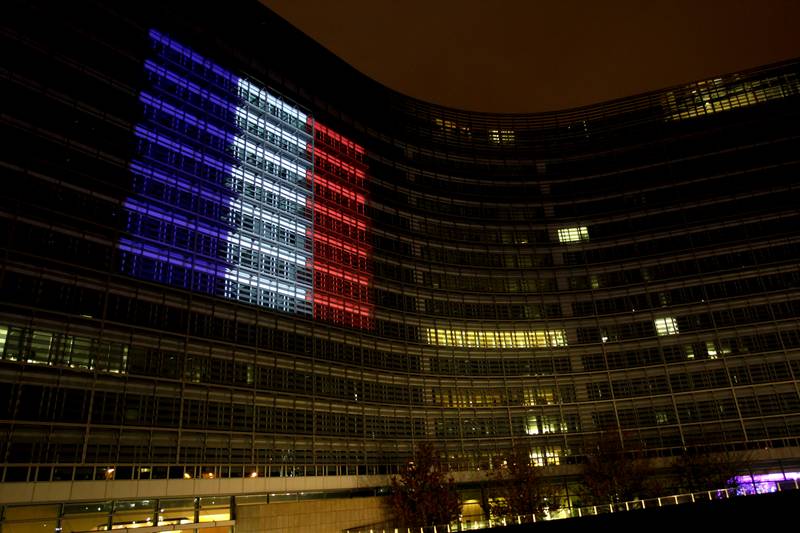 There are good news and bad news for the European Union after the Paris terrorist attacks of November 13th. Let us start with the good news. For the first time in history the leaders of the 28 member states came out with a common statement after the tragedy, in which almost 130 people lost their lives at different locations in the French capital. This is an absolute first. In all previous tragic occurrences, including the attack on the headquarters of the French satirical magazine Charlie Hebdo in Paris in January, the president of the European Council comes out with a statement on behalf of member states. Following European tradition, statements come from the institutions and from countries separately. This time, however, it was very different and the news is very good for several reasons. The first one is that this way a clear message is sent that this is not simply an attack against an individual state, but an attack on the entire community.
There are good news and bad news for the European Union after the Paris terrorist attacks of November 13th. Let us start with the good news. For the first time in history the leaders of the 28 member states came out with a common statement after the tragedy, in which almost 130 people lost their lives at different locations in the French capital. This is an absolute first. In all previous tragic occurrences, including the attack on the headquarters of the French satirical magazine Charlie Hebdo in Paris in January, the president of the European Council comes out with a statement on behalf of member states. Following European tradition, statements come from the institutions and from countries separately. This time, however, it was very different and the news is very good for several reasons. The first one is that this way a clear message is sent that this is not simply an attack against an individual state, but an attack on the entire community.
Something that was stated earlier in the speeches of individual leaders. German Chancellor Angela Merkel said in an emotional statement shortly after the attacks that “This attack on freedom is not only aimed at Paris. We are all targets, and it affects all of us”. Many others reacted likewise. Croatian Prime Minister went even further, saying this is a blow not only to European values, but universal human ones, which are larger than the European ones. Hungarian Minister of Justice László Trócsányi said in an interview for Hungarian national television channel M1 that these are attacks on European values.
Individual leaders reacted differently. Some held emergency press conferences, others sent condolence telegrams. All did, however, hold emergency sessions of their security councils. In their joint statement of Sunday the 28 declare: “We Europeans will all remember November 13th 2015 as a European day of mourning”. November 16th was declared European day of mourning and at noon a minute of silence was observed in all member states in memory of those, who lost their lives. This is an extreme rarity in the community, which lived through massive attacks in Madrid in 2004 and Great Britain in 2005. Organising the EP elections in all member states within the same week, for example, was considered a major integration achievement. In their declaration, leaders commit to doing anything possible at the European level to ensure France’s safety and fight extremism, terrorism, and hatred.
The news is good because of the timing as well. The attacks came in a period when the integrity of the EU for the first time looks threatened because of scepticism. This is where the good news end, however, and the bad news begin. Despite this truly unique drive toward unity, reality is not as romantic by far. The problem is one, but at many levels – common European actions. It will be particularly critical for the EU to prove that it stands by its words of November 14th with its work on the refugee crisis. A sign that the leaders are sincere would be their work on the European Agenda on security, presented last spring.
The refugee crisis is the most serious challenge for the Union’s integrity
Until now the EU has held several summits and numerous meetings of ministers, looking for a common solution to the migrant-refugee problem. There is, however, lack of unanimity. After extreme efforts some measures were agreed on, which this site qualified as a drop in the ocean, but implementation rates are frustratingly slow. It is about the quotas for distribution of 160 000 asylum-seekers among all member states. They were negotiated with the purpose of alleviating pressure off the frontline states – Italy and Greece in mind, which up until now, together with Hungary, have absorbed the greatest number of refugees. Implementation, however, is happening excruciatingly slow, which throws a shadow over the quotas’ fulfilment within the set timeframe – two years. Moreover, resistance to the quota system is growing.
By the end of last week 117 refugees have been transferred out of Italy – 48 to Finland, 19 to France, 12 to Spain, and 38 to Sweden. Just 30 people were transferred out of Greece – to Luxembourg. 16 member states have not yet provided accommodation sites. Bulgaria is the one to provide the most – 1302. Bulgaria, however, has not yet responded to Frontex’s request to send additional border police to the busiest areas in Greece, Croatia, and Slovenia. Bulgaria has also yet to appoint liaison officers to Italy and Greece. This is not yet done by almost half the member states, according to the Commission's report of last week (the one for this week is not yet ready).
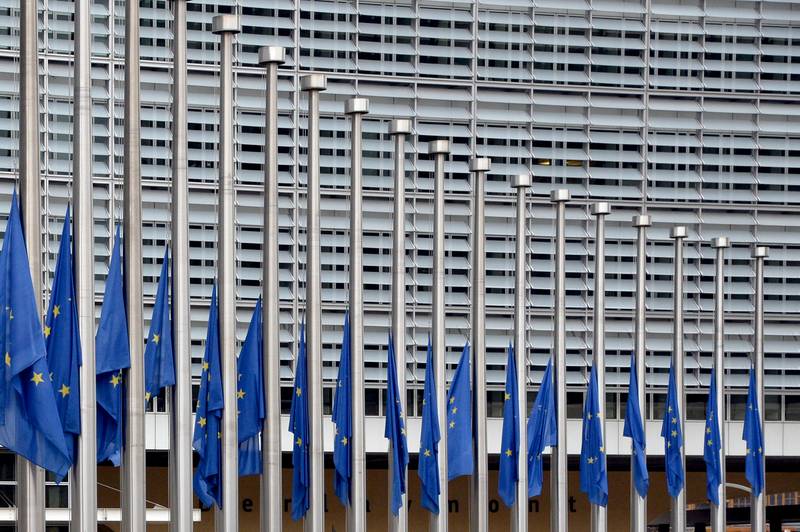
All member states, however, have created national points of contact. More promises are kept for paying contributions to key agencies and funds. Commitments to the African trust fund are almost entirely met. Only Croatia and Cyprus have yet to pay their contributions. The situation with the Syrian fund, however is far more lagging – 13 states are yet to pay their dues. Commitments to humanitarian programmes as well are with a different stage of fulfilment, the best situation being the one with the World Food Programme, where only six member states are yet to pay.
Many more have not met their commitments to the UN High Commissioner for Refugees and other programmes. The EC estimates that as of November 13 approximately half the promised funds are still missing. The last summit and the meeting of ministers of interior, dedicated to the refugees, were organised fully and only to remind member states of the commitments they made. There is weak implementation of another agreement, which is turning into a European mantra at the moment, as well – shipping back the ones, who qualify in the “economic migrant” category, meaning they do not cover the requirements for international protection. The necessity of their speedy return is now part of the talk of all political factors in the EU. The EC report of last week, however, shows that by the end of October a total of 153 people have been shipped back from Italy and not a single one from Greece. A total of 569 flights were done to countries like Albania, Kosovo, Nigeria, Armenia, Georgia. There are several flights organised from Bulgaria to Pakistan.
In addition to the slow implementation of agreements, the EU holds serious disagreements on what is to be done in the future with the incessant flows of refugees and migrants. Language is getting sterner and so are measures. Starting last week Slovenia and Austria began putting up wire fences and German Chancellor Angela Merkel is placed under serious pressure to limit the flow of refugees. More and more often the possibility in Schengen law for temporary reinstatement of border control is being used and the discussion of common border policing of European outside borders are in a very early and hardly promising phase, although member states are gradually warming-up to the idea. The conversation at the moment is swaying between the need for protection of the EU external border and protecting Schengen. Both hide very serious risks if actions are not coordinated not only within the EU, but also with countries along the key routes to avoid creating holdups of huge numbers of refugees in just one state, thus increasing pressure in a domestic and foreign plan.
First reactions after the terrorist attacks are very indicative of the large challenge, faced by the EU. In an interview for German newspaper Welt am Sonntag Bavarian Minister of Finance Markus Söder, who is a political ally of Angela Merkel’s party, stated that Paris changes everything. “The days of uncontrolled immigration and illegal entry can't continue just like that. Paris changes everything”. Hungary, which turned the Visegrád Four in a strong core on this and more and more often on other subjects as well, also hinted of a change. Minister of Justice László Trócsányi stated in his interview for M1 that “we must therefore wake up and start thinking where this path which Europe has set out on will lead us to”. Mr Trócsányi also said something very interesting. In his words there must be consultations between the Eastern and Western European states on the preparedness for the threat. It is this separation of Eastern and Western member states that is curious.
You can already feel a sharp change of tone after the new eurosceptic government was sworn into office in Warsaw last week. The new foreign minister, Witold Waszczykowski, shared a shocking idea on Polish public service television on Sunday. According to him, Syrian refugees should be trained in Europe and sent back to fight IS. He feels this would be far more useful than leaving them “sipping coffee on an iconic Berlin avenue or other European cities”. “They can go to fight to liberate their country with our help”, said the minister, who officially took the office on Monday (November 16). The calls for differentiating between refugees and economic migrants are less and less audible in the common din and ripening anti-refugee moods.
Is common battle against terrorism possible in the EU?
This is the other extremely prickly issue in the European Union, where member states find less and less motivation for uniting their efforts on a supranational level. The subject came into the EU sight right after the attacks against Charlie Hebdo, which provoked an emergency EU summit and meetings of Ministers of Home Affairs and Justice. In April, the EC presented its programme on European security, which suggests several things, but the most important part of it is the conclusion, which has been enforced on its own over the last few years – lack of trust between member states. “The success of the tools that the Union has put in place in recent years relies, first of all, on responsibility-sharing, mutual trust and effective cooperation between 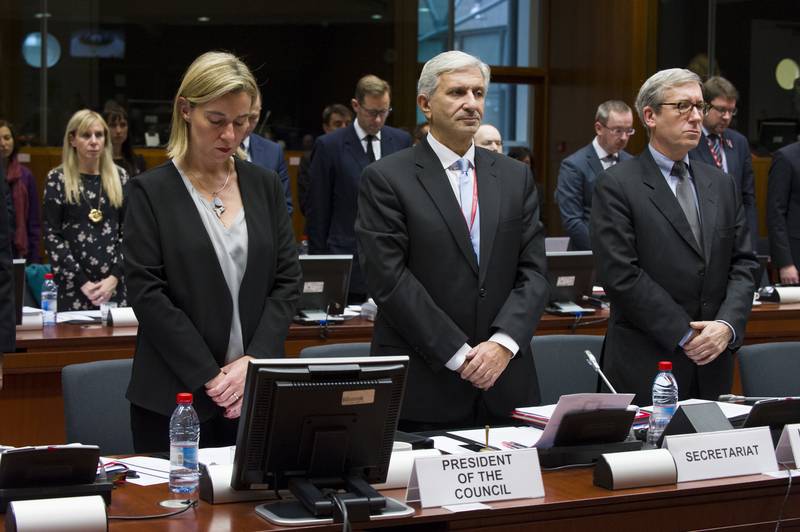 all actors involved: EU institutions and agencies, Member States and national authorities”, says in the communication to the Council and Parliament.
all actors involved: EU institutions and agencies, Member States and national authorities”, says in the communication to the Council and Parliament.
According to the EC, member states are unable to deal individually with their own security, so a boost is recommended in Europol’s work in the sphere of counter-terrorism through the creation of a European centre for fight against terrorism within Europol. It is also recommended that a European forum with high-tech companies is organised, so a solution can be found for countering terrorist propaganda and dealing with the new encryption technologies. Measures for battling terrorist activity financing, fighting online hate, focusing on education and culture, are also among the EC’s ideas. A major part of the EC’s programme is dedicated to fighting organised crime. Looking at it from the perspective of trust, however, the question emerges how could you work on a community level with states, which have systematic problems with their judiciaries, like Bulgaria for example, which has been under permanent monitoring by the EC in this sphere for eight years now, but has shown no improvement, even the opposite.
Eyes should not be diverted away from the countries in the enlargement process in a key region – the Western Balkans, which are infamous for systematic problems with organised crime and corruption as well, and at the moment are a central entry route into the EU. According to the Europol report published in June of this year, the threat of terrorism will keep rising. The greatest concern comes from jihadists, who travel to and from conflict zones. Despite 2014 data showing that most attacks in Europe are of a different character, Europol forecasts that religion-inspired attacks will grow. A sizable growth has been observed last year of arrests for terrorist activity with religious motives. Arrests were concentrated mainly in France, Belgium, Spain, Austria, Bulgaria, the Netherlands, and Germany. Arrests in these countries represent 93% of all religion inspired arrests.
In 2014, four people lost their lives in the EU as a result of terrorist attacks. The total number of attacks is 201, but this also includes the prevented ones. 774 people got arrested and 444 individuals have charges pressed against them, says also the Europol report. It is noted in it that despite the competition between Al Qaeda and Islamic State, Europe-based individuals and networks, who sympathise with one of the two terrorist groups, are much more likely to participate in the organisation of attacks. The situation in Libya and the Ukraine will in turn lead to a considerable increase of weaponry and explosives at the disposal of terrorists in the EU. The report reminds that conflicts in the Western Balkans states from the 1990s led to an abundance of weaponry in EU member states. This region continues to be an important part of the traffic of weapons into the EU.
In this sense it is very important to pay serious attention to Bosnia and Herzegovina, which has serious problems with the recruitment of youngsters by Islamic State. There are also websites in the country openly disseminating hatred and calling to violence. These websites remain active. You have to keep in mind that BiH is in a very complicated situation because of the setup of the federation, which makes it unable to act effectively, similar to the situation in Belgium, which has turned into a jihadist centre. Here, assistance from the EU and neighbouring states is more than necessary in order to prevent radicalisation of the region.
Along the Paris attacks one should not forget that most of the terrorist attacks on EU territory up to date are linked to ethno-separatist terrorism, leftist or rightist extremism, and isolated terrorist actions. More than half of the attacks last year were exactly of this nature, with many of them committed on the territory of Great Britain. One could deduce, based on registered cases, that incessant refugee flows could increase hate crimes and xenophobia in the refugee camps.
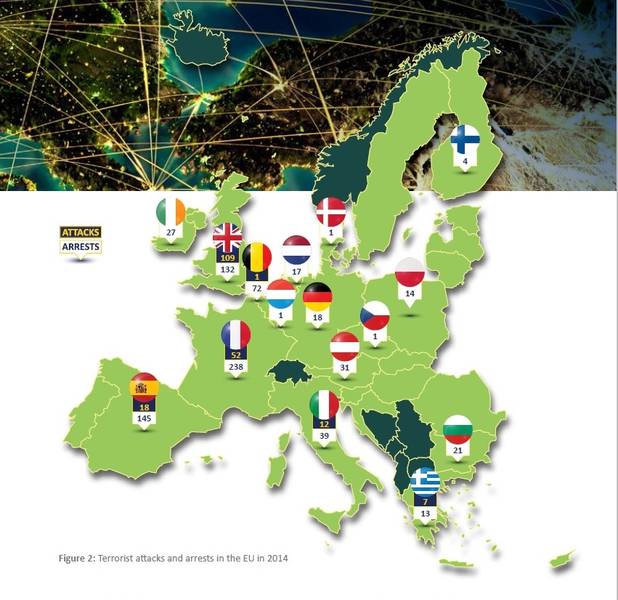
The Paris attacks in January activated talks at the EU level on counter-terrorism, but concrete actions are close to non-existent. The European security agenda was discussed at length by home affairs and justice ministers in June, but it is difficult to pick out specific commitments out of their conclusions. The EC announced on November 16 that, due to the Paris attacks, work on many of the tasks, listed in the security programme, is going to be accelerated considerably. There is another emergency meeting of home affairs ministers due on Friday with main topic the tragedy in Paris. Whether this will be another division line within the EU or it will turn out to be a catalyst of unity is a question that could hardly be answered today. One could conclude from sporadic statements in several capitals that work will be piecemeal again and at a direction, which could bring more problems than it could solve.
The EU needs to look beyond the Paris attacks and answer the question whether fragmentation of a number of spheres between member states makes it easier for terrorist groups and whether more Europe might be the answer. The most prominent Eurofederalist at the moment in the EU, Guy Verhofstadt, leader of the group of Liberals in the European Parliament (Belgium), stated on the subject of the November 13 attacks that while there are no borders for terrorists, borders do exist for national security agencies. In a special statement, he reminds that the terrorists who attacked Charlie Hebdo were tracked by British intelligence, but the Brits could do no more than inform their French colleagues. The same goes for the perpetrators of the November 13 attacks, where many more countries are involved – one of them entered with the refugee flow through Greece and crossed the entire Western Balkans route. Weapons used were delivered through Germany. A citizen of Montenegro was also involved in the whole scenario, his role as of yet unclear.
Guy Verhofstadt proposes that a European intelligence agency is created, for he thinks that coordination among national agencies is bad. At the moment, the EU has a coordinator on terrorism, but he works within the Council’s framework. Guy Verhofstadt proposes he is removed from there and is given autonomy. Besides, a European Border and Coast Guard are to be created. “National sovereignty doesn't mean that every member state should have its own state security agency or his own border guard”, he said and underlined that the solution is in working together. How would this happen with so little trust between member states is a key question, especially at the background of all the more common rows over member states spying on each other.
In order for the coordination Guy Verhofstadt talks about to happen, it is extremely important to secure trust. And this would mean ending the support for political parties that undermine rule of law and have considerable failures in fighting organised crime and corruption. Camaraderie with the Kremlin should also be a decisive factor when we talk about exchange of sensitive information. The possibility of a rapprochement between Russia and the EU in the face of a common threat should not cloud the fact that the Russian president is chasing his own agenda, works in the dark, and likes to surprise from behind. The EU must have a very serious discussion whether it should back dictators or the efforts for their removal. This is a very serious dilemma from the last decade.
After the decision of former US President George W. Bush to invade Iraq, aiming to remove Saddam Hussein, backed by the Coalition of the willing, which included European states, accusations keep raining that this was a wrong move, which created the basis for the current difficult situation in the Middle East. Inside the EU, however, accusations keep coming at individual European leaders that they were cooperating with dictator regimes in Northern Africa or the Middle East. It is obvious that the moment has come for looking for a common position on this subject. It is of no lesser importance that the EU works on a common foreign policy. At the moment, the bombings in Syria are a matter of individual choice of the EU member states. It is totally unclear whether the EU supports this or not.
Article 5, article 222, or article 42?
Another very sensitive subject was raised to attention in public space over the last few days. The statement of French President François Hollande immediately following the November 13th terrorist attacks that with those France has in fact been declared war, as well as his latter statements that France is in a state of war are reason enough to activate Article 5 of the NATO treaty, which stipulates that an attack at one member state is an attack on all. Currently, however, European leaders are reluctant towards a NATO involvement. German Minister of Foreign Affairs Frank-Walter Steinmeier stated during a hearing in the EP’s foreign affairs committee on the afternoon of November 16th that no one believes a NATO intervention would help.
There were talks in the EU for activating Article 222 of the Treaty of Lisbon, which is a pale equivalent to the NATO Article 5. It states that the Union and member states can act together in a spirit of solidarity if a member state is subjected to a terrorist attack or is a victim of a natural or man-made disaster. This article allows even for the use of military means for the prevention 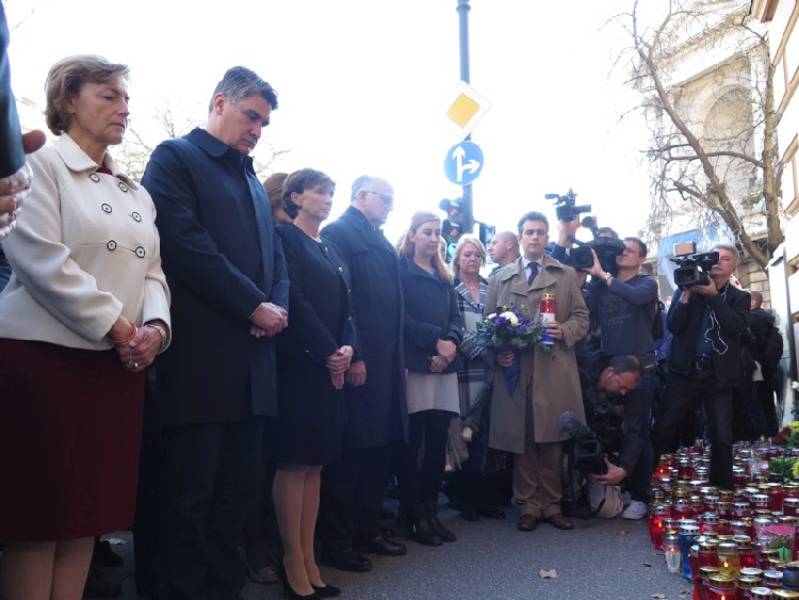 of a terrorist threat on the territory of member states, and aiding individual member states on their territory at the request of their political leadership.
of a terrorist threat on the territory of member states, and aiding individual member states on their territory at the request of their political leadership.
Another article of European founding treaties, which surfaced in public space is Article 42 which deals with the common policy on defence and security. There is a paragraph in it (7), which binds member states to respond in case of armed aggression towards a member state at its territory. These are tools that have never been used so far. France is the first state that has asked for the activation of Article 42, paragraph 7 on Tuesday morning. This is more good news, which shows that among the centrifugal forces in the EU there are also centripetal ones that are gearing up to speed. The manner in which other member states respond will show whether euroscepticism’s power is larger than the threat that Islamic State and other terrorist groups are, which aim at destroying our way of life.
It may seem to many that the EU is facing the next difficult decision and huge obstacle, but actually all the problems that the Union is struggling with at the moment are the result of a lack of common actions, which includes forecasting of these troubles, active exchange of information, preparation for them, and dealing with the aftermath.
Translated by Stanimir Stoev
 Federica Mogherini | © Council of the EU
Federica Mogherini | © Council of the EU | © Council of the EU
| © Council of the EU Luis De Guindos | © Council of the EU
Luis De Guindos | © Council of the EU